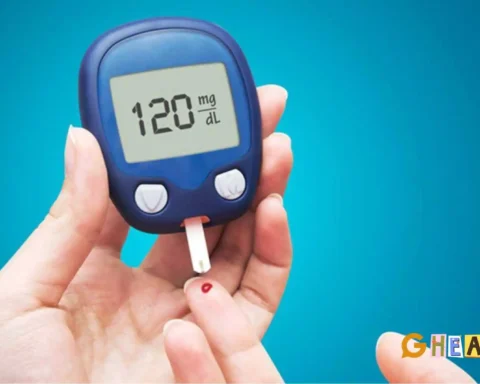Parkinson's is a neurological disorder that is characterised by the loss of movement ability. Living with Parkinson's disease presents challenges that can impact daily living, daily activities and overall well-being. However, with a thoughtful care plan tailored to individual needs, individuals with Parkinson's can optimize their quality of life and better manage their symptoms.
In this blog, we will explore simple Parkinson's disease care plan options to enable you and your loved ones to manage the disease and promote better health.
Table of Contents
Understanding Parkinson's Disease
Parkinson's disease is a progressive neurological disorder that primarily affects movement. It occurs when nerve cells in the brain that produce dopamine, a chemical messenger responsible for coordinating smooth and controlled muscle movements, become impaired or die. The loss of dopamine leads to abnormal brain activity, causing motor symptoms associated with Parkinson's disease. These symptoms include tremors, stiffness, slow movement (bradykinesia), abnormal involuntary movements (dyskinesia), postural instability and difficulties with balance and coordination. In addition to these physical symptoms, Parkinson's can also lead to non-motor symptoms such as anxiety and depression as well as cognitive symptoms such as loss of memory or difficulties in planning or following instructions.
YOU MIGHT BE INTERESTED IN: Fighting the Stigma around Parkinson’s with Sanjeev Dixit
Causes, Diagnosis, and Treatment
While the exact cause of Parkinson's disease is still not fully understood, it is believed to be a combination of genetic and environmental factors. The primary pathology of Parkinson's disease involves the degeneration of dopamine-producing neurons in a region of the brain called the substantia nigra. This leads to the formation of abnormal protein clumps inside the brain cells, characteristic of Parkinson's disease.
There is also no specific test to definitively diagnose Parkinson's disease, so a diagnosis is often made by a neurologist based on clinical judgment. Diagnosing Parkinson's disease is based on medical history, family history, a review of symptoms, and a neurological examination.
Treatment for Parkinson's disease aims to manage symptoms and improve quality of life. Medications such as levodopa which increases dopamine levels in the brain are commonly prescribed. Other treatments may include dopamine agonists, MAO-B inhibitors, anticholinergics, and amantadine. In advanced cases where medications are no longer effective, surgical options such as deep brain stimulation may be considered to help control symptoms.
The Importance of a Care Plan
Parkinson's disease has no cure and while medication may help, it is essential to have a Parkinson's disease care plan. A well-rounded plan for the disease is crucial for addressing both the physical and emotional aspects of the condition and should be personalized based on disease symptoms, current cognitive impairment, progression of symptoms, disease progression and stage, and lifestyle factors. Physical therapy, occupational therapy, language therapy, speech therapy, and regular exercise are important components of a comprehensive care plan. Additionally, emotional support from family, friends, and support groups can be invaluable in coping with the challenges of Parkinson's disease.
It is crucial that you follow the care plan laid out by members of your healthcare team and healthcare professionals. A simple Parkinson's disease health care plan often involves consultations by a physical therapist, speech therapist, and occupational therapist. Palliative care is also suggested to have been impactful in assisting those with the disease and improving their daily living conditions. The care plan is also important in improving the daily life of the patient's care partner and takes into account the mental health and physical of both.
ALSO READ: Acute Parkinsonism: 5 Early Warning Signs You Shouldn’t Ignore
Simple Parkinson's Disease Care Plan
While it is best to follow the plan of care as advised by your healthcare providers, a simple Parkinson's disease care plan has been described below. As the disease progresses, a plan of care that can be followed at home is usually the best practice. In-home care options, paired with palliative care have been found to have bettered the living conditions and daily lives of those with the disease. These plans of care usually involve the following elements:
Medication
Medicines can help motor and non-motor symptoms in those with Parkinson's disease. These medication plans improve dopamine levels in the brain. Initially marked by vast improvement, these medications usually diminish in effectiveness as time passes. This is because dopamine cannot directly enter the brain and is rather induced through various drugs. However, disease symptoms remain manageable and medication is a big part of monitoring and curbing the progression of symptoms and disease. Furthermore, it is critical that the medication be registered on time and that the patient's vital signs be measured at regular intervals.
Exercise Regime
Exercise is a very important part of a Parkinson's disease care plan. Frequent exercise helps monitor motor symptoms such as tremor issues, involuntary movement, stiffness and others. Staying active also helps patients better daily living activities such as walking, showering, cooking, and more. Physical activity in patients has also been known to improve their quality of life. It is best to follow a plan of care that has been drawn up by your health professionals and a physical therapist. A regular exercise regime allows individuals to stay on top of the disease process and maintain mobility as long as possible.
Healthy Diet
While there is no proven combination of foods that helps with Parkinson's disease, particular foods may ease some symptoms. For example, consuming foods high in fibre and adequate fluid intake may help prevent symptoms such as constipation, common in Parkinson's disease. Omega-3 fatty acids have also been found to be beneficial to patients with Parkinson's disease. Poor nutritional status has also been shown to lead to lower quality of life among patients, therefore maintaining a balanced diet forms a crucial part of a Parkinson's disease care plan.
Emotional Well-Being
Apart from physical symptoms and cognitive impairment, living with Parkinson's disease can also take a toll on the emotional well-being of both the patient and the caretaker. Due to the progressive nature of the disease, it can cause extreme anxiety and depression among patients. Furthermore, constantly taking care of the patient can cause burnout and feelings of hopelessness in the care partners. Additionally, facing end-of-life care can also cause feelings of despair. Therefore it becomes paramount to take into account the emotional well-being of patients and their partners. Building support groups and seeking professional help if needed can also be included in building a Parkinson's disease care plan.
RELATED: How to Live Well with Parkinson's Disease with Vonita Singh
Conclusion
In conclusion, managing Parkinson's disease requires a comprehensive care plan that addresses both the physical and emotional aspects of the condition. A personalized Parkinson's disease care plan that has been developed in collaboration with healthcare professionals and various therapists, can significantly improve the quality of life for individuals living with the disease.
From medication management to regular exercise, healthy diet, and emotional support, each component plays a vital role in optimizing daily living and managing symptoms effectively. By prioritizing holistic care and utilizing available resources, individuals with Parkinson's disease can navigate the challenges of the condition with resilience and maintain a fulfilling life despite its impact. Supporting both patients and caregivers is essential for promoting well-being throughout the disease journey.
FAQs
How to Care for a Patient with Parkinson's Disease?
It is best to care for a patient with Parkinson's disease by managing medications, assisting with daily activities, encouraging regular exercise, providing nutritious meals, offering emotional support, ensuring safety at home, and staying informed about the disease and its management. Care should be adapted based on individual needs and consult healthcare providers for guidance.
What is the Diagnosis of Parkinson's Disease?
Since Parkinson's does not have a specific test to detect the disease's presence, doctors usually diagnose based on an extensive medical history. To get diagnosed an individual must exhibit bradykinesia (slowness of movement), body tremors, cognitive impairment or balance issues.
What Causes Parkinson's Disease?
Parkinson's Disease is a degenerative disease that leads to loss of dopamine levels in the brain. The exact cause of the disease is unknown but researchers believe it to be a mix of environmental and genetical conditions.











[…] especially neurodegenerative disorders, the 2 often share many similarities and dissimilarities. Parkinson's disease and Multiple Sclerosis are both examples of neurodegenerative […]
[…] Parkinson's disease is a disorder of the brain which causes uncontrollable and unintentional movements. The prevalence of such neurodegenerative diseases is gradually increasing, with research suggesting that 139 million people will be diagnosed with dementia by 2050. Due to the adverse effects that come with the disease, many studies are constantly conducted to find relief for the debilitating symptoms, if not a cure. […]